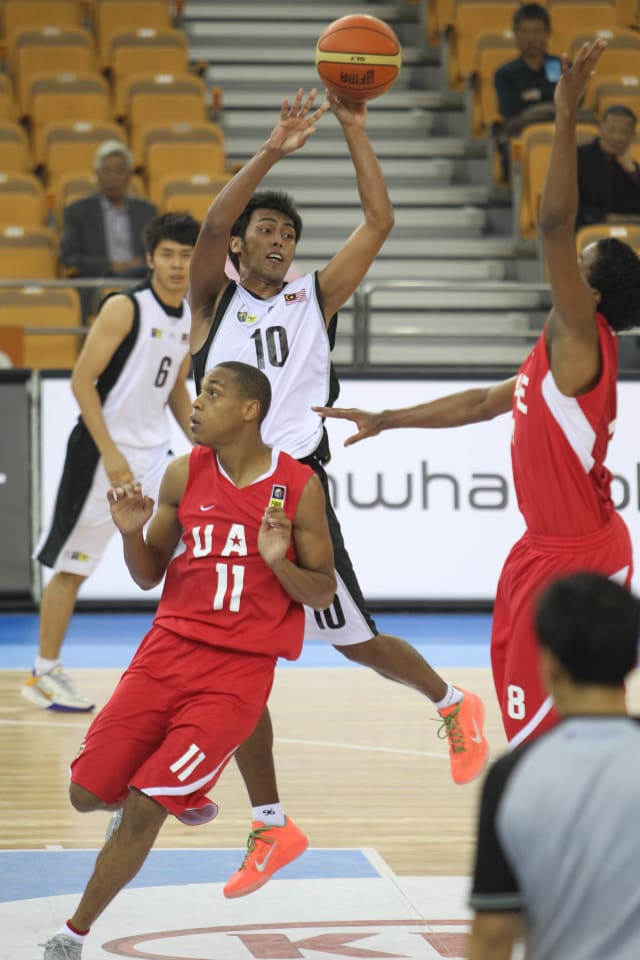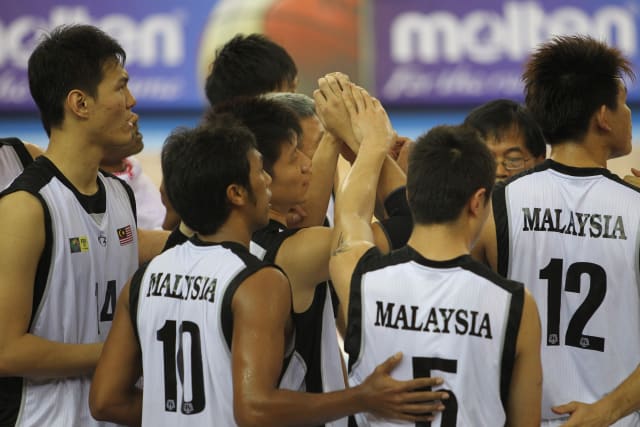Malaysia Legend Guga recalls win over India in 2011 as personal best FIBA Asia Cup moment
KUALA LUMPUR (Malaysia) - Malaysia will face a tough task at the Asia Cup Qualifiers but retired legend Guganesawaran Batumalai might know a thing or two about the mindset to have in order to succeed.
KUALA LUMPUR (Malaysia) - There are not many countries that are as rich in FIBA Asia Cup history as Malaysia. As a matter of fact, Malaysia are one of only 8 countries to have participated in the largest regional competition throughout its existence with 24 appearances in total.
They will be facing stiff competition on their way towards another possible berth after being grouped with China, Japan, and Chinese-Taipei in Group B of the FIBA Asia Cup 2021 Qualifiers which will commence action in February 2020.
Not exactly the easiest of paths to go through.
If there’s someone who might know a thing or two about leading Malaysia to continental success, it might just be well-respected Malaysian point guard, Guganeswaran Batumalai.
“China, Japan, and Chinese Taipei are big challenges for us,” Batumalai, or also fondly known as Guga,” said. “In these recent years, we have never beaten these teams . I hope our Malaysia national team will go all out and put up a good fight for our opponents.”
Following a storied career both with the national team and with clubs in Malaysia, the retired 37-year-old has already taken up a role as a coach. In a slight twist, he had expanded his coaching career in China, home to one of Malaysia’s upcoming opposition. Guga was already studying in China up until the age of 26 before later returning to coach for a Chinese National Basketball League (NBL) and university team. Therefore, he knows firsthand how advanced basketball in China is and how tough they will be to beat.
The Malaysian floor general also knows that it will always be too early to give up against any team they might face.

“Malaysia will come out with a young team,” Guga admitted. “Most people will think China won’t lose to Malaysia, but the main problem with that is our mindset has already lost.”
“No matter who we play, we should give our best and fight for the win.”
Malaysia will start their qualifiers campaign in Taipei on February 21, 2020. Shortly after that in the second game day on February 24, 2020, Malaysia will be on the road to play against China.
While it’s no doubt that they will be underdogs going up against the 30th ranked team in the world, according to the FIBA World Ranking, presented by NIKE, Malaysia might be able to conjure an extra boost of energy from past memories of success at the Asia Cup playing in China. It was in Wuhan back at Asia Cup 2011 when Malaysia had their best finish at 11th place in over 20 years.

(Malaysia at FIBA Asia Cup 2011, Guga in #10)
In the second game of the competition that year, Malaysia broke a 20-game losing streak in the Asia Cup with a 71-67 win over India. That game remains a fond memory for Guga to this day.
“My best memory was advancing to the second round that year and when we beat India,” Guga, who is of Indian ethnicity, said with a laugh. “Their team manager said that they had lost to an Indian in Malaysia!”
(Guganeswaran Batumalai at the FIBA Asia Cup 2011)
Then at his prime at 29-years-old, Guga put up a stellar all-around game of 14 points, 7 rebounds, and 6 assists for the win. Malaysia would collect two more wins that year, both over Uzbekistan, with Guga as the leader in scoring and assists. The Kuala Lumpur native ended up with averages of 10.5 points, 3.8 rebounds, and 4.9 assists per contest throughout the competition.
“I really didn’t know that I was the leader in assists and points on my team at that time but I wanted to win for Malaysia,” Guga humbly said. “That’s what I was thinking because I told myself that maybe this would be the last tournament that I will represent my country.”
If that is the mindset that pushed a Malaysian legend like Guganeswaran Batumalai to play well in the FIBA Asia Cup setting, it might be wise for the next generation of the Malaysia national team to take notes.
FIBA